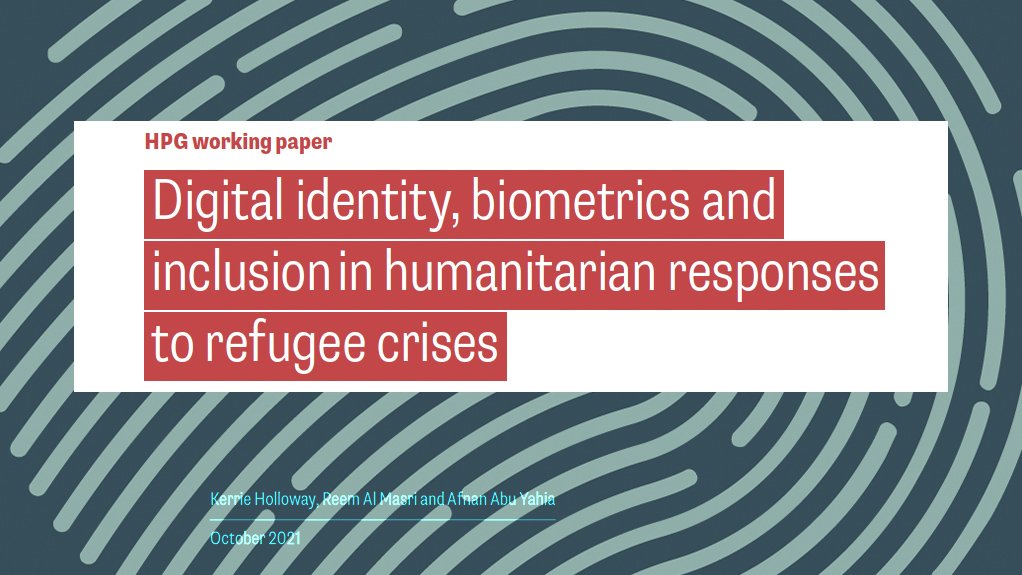- Digital identity, biometrics and inclusion in humanitarian responses to refugee crises0.56 MB
Digital identity and biometrics have long been divisive topics in the humanitarian sector. On the one hand, they have the potential to be more inclusive and reach people in need at scale. On the other hand, serious questions have been raised around their potential for harm, particularly related to data privacy.
As the use of digital identity and biometrics continues to grow, the humanitarian sector must find ways to improve the systems that are in place and mitigate potential risks. These risks go beyond technical failure and relate to broader issues. Technology has often deepened, rather than solved, long-standing structural issues, such as the unequal power dynamics between aid giver and aid receiver, and questions of inclusion and exclusion, such as who gets to decide who is included and how these decisions are made. Due to their immutable nature, the use of biometrics has thrown up several human rights issues around choice, informed consent, privacy and data protection.
Biometrics have been used to create digital identities in the humanitarian space since the early 2000s, though little research has been conducted on how end users – in this case, those who register for humanitarian assistance – understand and experience using this technology to receive aid. This report seeks to help fill this gap by sharing the perspectives of (mostly Syrian) refugees in Jordan on their experiences with biometrics, alongside analysis of the larger issues of digital identity.
Report by the Overseas Development Institute
EMAIL THIS ARTICLE SAVE THIS ARTICLE ARTICLE ENQUIRY
To subscribe email subscriptions@creamermedia.co.za or click here
To advertise email advertising@creamermedia.co.za or click here











